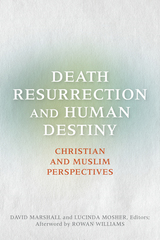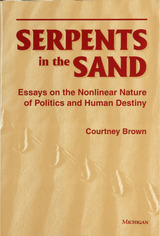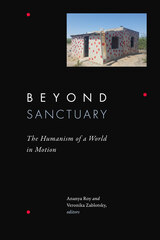
Death, Resurrection, and Human Destiny: Christian and Muslim Perspectives is a record of the 2012 Building Bridges seminar for leading Christian and Muslim scholars, convened by Rowan Williams, then Archbishop of Canterbury. The essays in this volume explore what the Bible and Qurān—and the Christian and Islamic theological traditions—have to say about death, resurrection, and human destiny. Special attention is given to the writings of al-Ghazali and Dante. Other essays explore the notion of the good death. Funeral practices of each tradition are explained. Relevant texts are included with commentary, as are personal reflections on death by several of the seminar participants. An account of the informal conversations at the seminar conveys a vivid sense of the lively, penetrating, but respectful dialogue which took place. Three short pieces by Rowan Williams provide his opening comments at the seminar and his reflections on its proceedings. The volume also contains an analysis of the Building Bridges Seminar after a decade of his leadership.

READERS
Browse our collection.
PUBLISHERS
See BiblioVault's publisher services.
STUDENT SERVICES
Files for college accessibility offices.
UChicago Accessibility Resources
home | accessibility | search | about | contact us
BiblioVault ® 2001 - 2025
The University of Chicago Press









